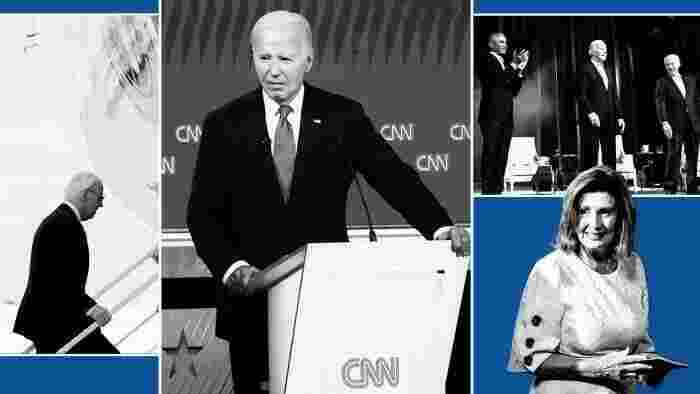The sun was shining on a summer's day as President Joe Biden's motorcade rolled into Detroit, Michigan. The previous evening, he had muddled through yet another make-or-break encounter with the media, holding a press conference at the conclusion of the NATO summit in Washington, DC. While Biden managed to display deep knowledge of global affairs, he also flubbed names, referring to his "Vice President Trump."
As Biden arrived in Detroit, the capital of the US car industry, he was facing increasing doubts about his age and fitness for office. The city itself felt like a spiritual homecoming for the President, who had played a crucial role in its salvation after the 2008 financial crisis by overseeing emergency loans to keep General Motors afloat. Now, Biden needed Detroit's grit and resilience as he fought to salvage his political career.
The Renaissance High School gymnasium was intimate compared to the massive crowds that often attended former President Donald Trump's rallies. Many of Biden's supporters wore union T-shirts, and a significant number were Black, a key constituency that had helped secure his victory in the Democratic primary four years prior. Notably absent was Gretchen Whitmer, the Democratic Governor of Michigan, who had been touted as a possible replacement for Biden.
The Biden who stood before the crowd that day was uneven in his performance. He confused names and struggled at times to read from the teleprompter. However, there were still moments of warmth and connection, such as when a lone voice cried out, "We love you!" It seemed to lift Biden's spirits, and the rote routine of his stump speech transformed into something more personal and engaging.
As attendees left the rally, one woman expressed visible relief, saying, "He needed that." Little did they know that this rally would feel like a swan song for the aging politician. The next day, in Butler, Pennsylvania, a 20-year-old man would fire a volley of bullets at Trump during a rally, injuring his ear and killing a retired fireman. Trump, unharmed, rose to his feet, waved his fist in the air, and exhorted his supporters to "fight!"
The contrast between the two candidates could not have been more stark: one struggling to walk, the other dodging an assassin's bullet. As if Biden's challenges weren't already formidable, he would soon be diagnosed with COVID-19, forcing him to take to his sick bed in Delaware. Meanwhile, the campaign against him in Washington intensified, with party elders remaining silent as more Democrats publicly called for him to step aside.
By Saturday evening, Biden was coming to terms with the inevitable, according to people close to the matter. The following day, he called Vice President Kamala Harris, his chief of staff, Jeff Zients, and his campaign chair, Jen O'Malley Dillon, to inform them of his decision to not seek re-election. The news sent shockwaves through the political world and left Democrats with a mix of emotions.
Frank Aquila, a corporate lawyer and Democratic fundraiser, summed up the feelings of many: "We all loved Biden because he was a pragmatist capable of uniting the different souls of the party... That's why it was so hard to accept that he wasn't fit any longer to be our candidate." The downfall of Biden, an unprecedented political geronticide, played out over 24 days, with the President and his inner circle fighting to cling to power as a growing number of Democrats worked to topple him.
The undoing of Joe Biden
Three weeks of Democratic party agony that humbled the most powerful man in the world

